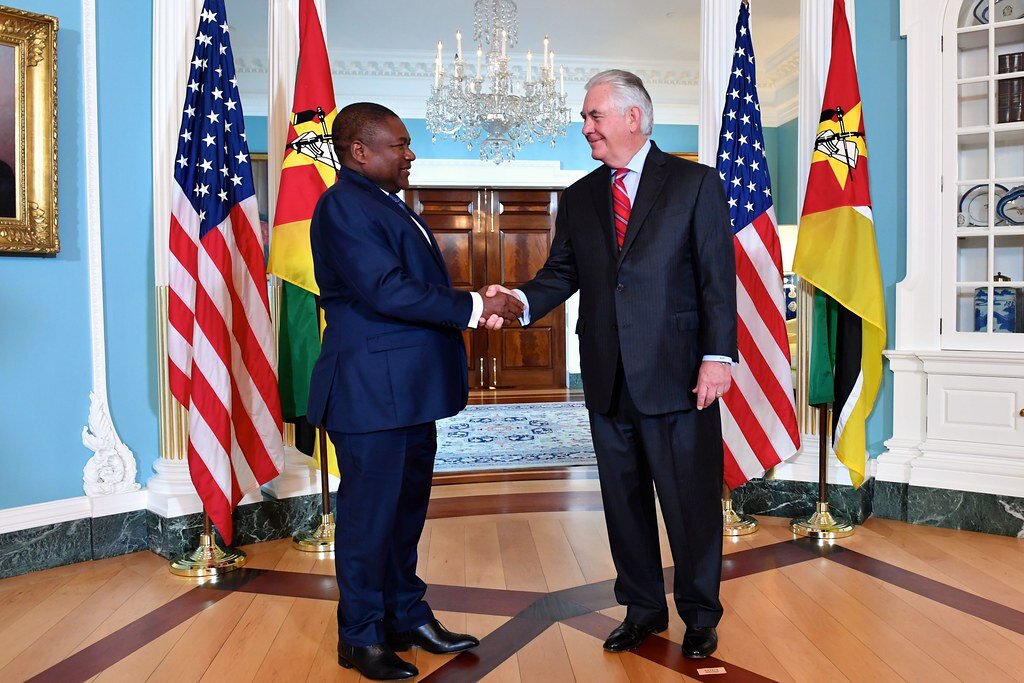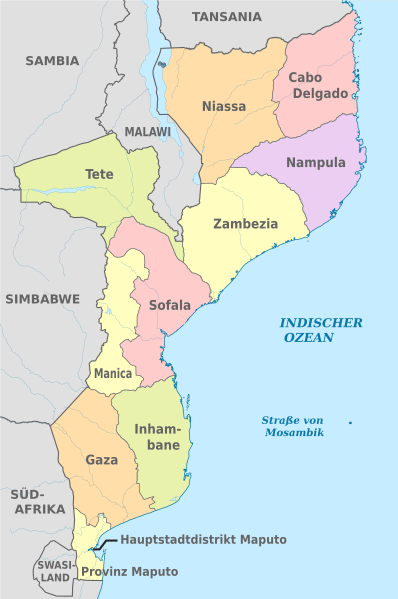The Most Mysterious Terrorist Group in the World, and What the U.S. Can Do About It
Study the distribution of violent extremist attacks on the African continent over the last ten years and four major areas emerge: the North African coast, the Sahel regions of Mali, the Lake Chad basin, and the low-lying arid portions of the Horn of Africa. The groups in these parts are well established, and their names are infamous – Boko Haram, Al-Shabaab, Al Qaeda and the Islamic State. In only the last two years, however, a fifth region of activity emerged inexplicably in the northern Mozambique province of Cabo Delgado, and no one is quite sure why. Mozambique is geographically disparate from the Sahara and Sahel regions which extremist groups have used as a haven for almost two decades. True, the country does have a history of insurgency; the major opposition group, RENAMO, began a low-level conflict against the prevailing FRELIMO party shortly after Mozambique gained independence from Portugal in 1976. Cobbled together with the help of the Apartheid governments of Rhodesia and South Africa as an ‘organic’ anti-communist group, it drew so little local support that it frequently resorted to forced conscription. RENAMO became a registered political party in 1992, and with dwindling enthusiasm, its armed wing agreed to a formal peace deal with the Mozambican government in 2019.
The most recent insurgency in Cabo Delgado shares little in common with RENAMO. The northern province is predominantly Muslim and poor, but has no history of any insurgency, jihadist or otherwise. But beginning in October of 2017, reports of grisly attacks from a mysterious hardline Islamic group began to emerge. The question of how to handle this insurgency is particularly vexing as no real claim of authority or ideology by the perpetrators has ever accompanied the attacks. They prefer to stay anonymous, and are known only by the names given to them: Ansar Al-Sunna (AAS) or sometimes Al-Shabaab (not to be confused with the famous Somali group). While the Islamic State has been keen to take credit for many of AAS’s attacks, there is little evidence to suggest that they are directly orchestrating the insurgency. It appears that AAS’s resources and motivations, whatever they may be, are fundamentally local rather than imported.
If AAS is a homegrown movement, then it is worthwhile to examine RENAMO once more. While RENAMO failed as an opposition group, it did enjoy limited but authentic support in the central provinces of the country. This had less to do with its rhetoric and more to do with local politics; the Shona-speaking population of the central provinces heavily favored local governance, and were highly resistant to FRELIMO’s central planning decisions made in Maputo, the capital. Compulsory villagization - the forced resettlement of rural populations for development purposes - and agricultural reform programs were particularly hated, and fueled a narrative amongst the rural population that urban-dwelling FRELIMO leadership were enjoying the spoils of nationalistic independence while destroying the traditional culture and livelihoods of those outside Maputo.
Cabo Delgado is located in Northern Mozambique
In the last few years, a similar phenomenon has played out across the country, particularly in Cabo Delgado. Mozambique is home to a vast array of natural resources that have only become exploitable following the end of the civil war. Cabo Delgado itself is home to one of the largest deposits of natural gas in the world. While this has been a sign of hope for Mozambique’s national revenues, the reality for the minority Muslim and Mwani-speaking people of Cabo Delgado is quite different. Contemporary extractive resource industries are highly automated and technical, and in developing countries, they typically employ few members of the domestic labor pool and reserve higher-paying technical positions for foreign experts. The result in Cabo Delgado has been increasing inequality, dashed hopes, and a palpable feeling that the country’s wealth is being exploited to the benefit of foreign energy firms and a corrupt public sector based in Maputo. This is not too far off from the conditions that allowed RENAMO to grow its own domestic support base. It is almost certain that the disillusioned sentiments of unemployed youth are at the root of the attacks and that the exploitation of Cabo Delgado’s resources play an instrumental role, as evidenced by attacks targeting the employees and resources of American energy company Anadarko.
What is to be done? The effectiveness of the Mozambican government’s response so far is questionable. A security crackdown has been implemented, although the exact severity of this response remains unclear as the government enforces a journalistic and media blackout in the province. Reports suggest that the government’s response involves human rights abuses and an acute smothering of the region’s Islamic practices. If AAS is anywhere near as competent as RENAMO was, then they will easily be able to co-opt the grievances that this crackdown is producing and eventually expand into a more destabilizing regional presence.
With a desire to eliminate the insurgency without drawing too much attention to its operations, the Mozambican government in October allowed Russian equipment and personnel into Cabo Delgado. This is significant because it is very likely that any use of force by Russia in support of Mozambique’s own counterinsurgency operations will backfire. Counterinsurgency campaigns conducted by force rarely work, especially when a foreign power intervenes to help a government controlling an alienated minority population. Indeed, there are already speculative reports of insurgents as well as civilians in Cabo Delgado fighting back against government forces. If Russia becomes an antagonistic power in the province, then the United States will have the opportunity to position itself as a more diplomatic and constructive alternative, a mediator rather than an agitator.
The above conditions present a real political challenge to the region that the United States might be able to help solve if it has the necessary patience and restraint. Recommendations include:
Avoid any kind of military intervention or support and allow Russia to present itself as the forceful interventionist power that it is;
Provide humanitarian support to displaced civilians affected by the violence in line with the requests for support already made by UNHCR, and offer institutional capacity-building support to strengthen both Cabo Delgado’s sense of representation and the government’s ability to provide critical services to the province;
On the economic front, encourage operational and revenue-sharing agreements between local leaders and foreign energy firms in Mozambique, and direct more material and institutional resources towards developing Mozambique's potentiality as a high-productivity agricultural sector.
These recommendations are ranked in order of most to least critical. Above all, it is vital that the United States abstain from any military intervention or assistance and instead offer its influence and support should the military response of the Mozambican government and Russia prove ineffective or unpopular. At the same time, the US response to the insurgency should be adjusted to fit the dynamics of Cabo Delgado and Mozambique at large, which are liable to present unexpected changes as AAS continues its operations. So long as the US makes its status as the alternative to overbearing coercive actors clear, it will have a wide latitude within which to adjust its actions.

